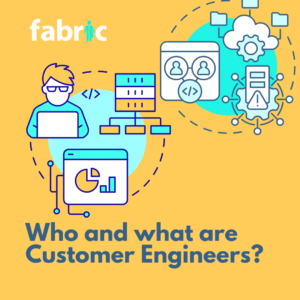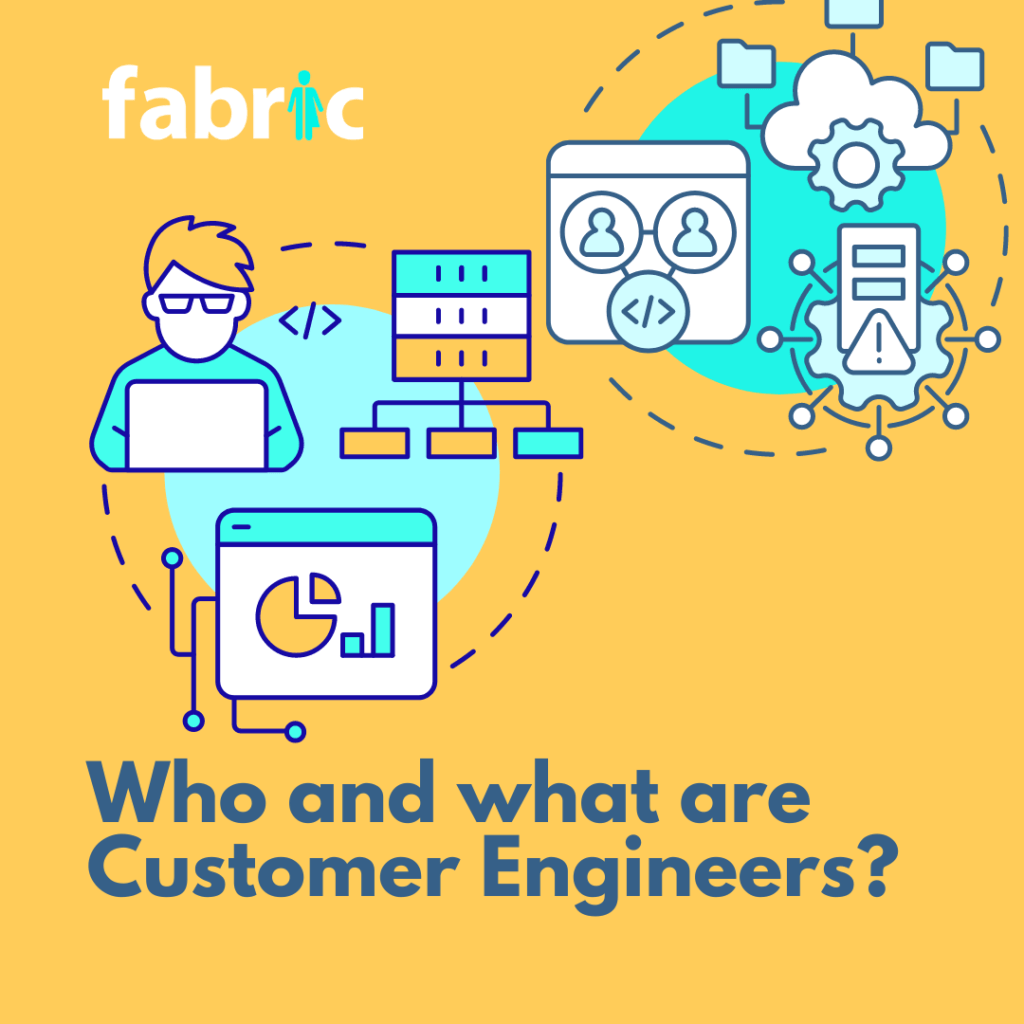Who are Customer Engineers and What Do They Do?

Customer Engineers, or, also referred to by various titles such as Solutions Architect, Sales Engineer, or Technical Sales Developer; are the unsung heroes behind the scenes; bridging the gap between complex technical offerings and the real-world needs of customers.
At its core, the role of a Customer Engineer revolves around understanding customer requirements, showcasing how a company’s technical products can address those needs effectively, and guiding customers through the intricacies of product utilization.
This multifaceted responsibility demands a blend of technical prowess, adept communication skills, and a genuine commitment to customer success.
Success in the realm of Customer Engineering hinges upon a fusion of technical expertise and key personality traits. These skills serve as the bedrock for navigating challenges, fostering professional relationships, and driving business growth:
- Analytical: Masters of deciphering complexity, they unravel intricate technical conundrums with aplomb; cloud computing, programming languages, data technologies, and infrastructure principles.
- Problem-Solving Savvy: Armed with ingenuity, they transform challenges into opportunities for innovation.
- Customer-Focused: With an empathetic ear, a strategic mind, and great communication they decipher client needs and engineer solutions that resonate.
- Adaptability: Navigating the ever-shifting tides of technology and client demands, they remain agile, flexible, and resilient.
- Communication Maestros: Fluent in the language of technology and humanity alike, they bridge the gap between the technical and the tangible.
- Team Players: Collaboration is their modus operandi, as they harmonize disparate teams toward a singular vision of success.
- Curiosity and Continuous Learning: Ever the seekers of knowledge, they embrace the ever-evolving tech landscape with fervor.
- Resilience: Fortified by resolve, setbacks are but stepping stones on their journey to triumph. Aligning technical prowess with strategic imperatives, translating solutions into tangible value propositions.
- Self-motivated: With initiative as their compass, they chart their course toward innovation and excellence.
The average Customer Engineer technical skill set (may vary depending on industry): AWS, Azure, Google Cloud, Python, Java, JS, GO, and R. Knowledge in databases/warehouses, big data solutions, networking, security, and IaC principles.
Does this sound like you, or a career you would be interested in the future? Contact a Fabric Staffing recruiter today: jobs@fabricstaffing.com.
Education and Skills
The educational path to becoming a Customer Engineer is diverse, reflecting the multifaceted nature of the role.
While a bachelor’s degree in computer science, engineering, or a related field serves as a solid foundation, practical experience and certifications hold equal sway in the eyes of employers.
Continuous learning and staying ahead of industry trends are imperative in this ever-evolving domain.
Technical proficiency forms the bedrock of a Customer Engineer’s skill set, encompassing mastery of cloud computing platforms, programming languages, and data storage technologies. Equally crucial are problem-solving aptitude, customer-focused communication, and a collaborative spirit that fosters synergy across teams.
How To Recruit Customer Engineers?
- Technical Proficiency
At the heart of the Customer Engineer role lies a foundation of technical prowess. When sourcing candidates, it’s imperative to assess their proficiency in key areas such as cloud computing, programming languages, data analytics, and infrastructure principles. Look for candidates with a demonstrated track record of success in leveraging technology to solve complex challenges, and ensure they possess the requisite skills to navigate the ever-evolving tech landscape. Ask questions like:
- Can you walk me through a recent project where you utilized technologies to solve a complex problem?
- What programming languages and tools are you most proficient in, and how have you leveraged them in previous roles?
- How do you stay updated with the latest trends and advancements in technology, and how do you apply this knowledge in your work?
- Communication Skills
In addition to technical expertise, effective communication skills are paramount for Customer Engineers. These professionals serve as the bridge between technical intricacies and real-world applications, often interfacing with clients and internal teams alike. Look for candidates who can articulate complex concepts with clarity and precision, both verbally and in writing. The ability to convey technical information in a manner that resonates with diverse audiences is a hallmark of a standout Customer Engineer. Some questions to gauge communication skills are:
- Can you provide an example of a time when you had to communicate complex technical concepts to a non-technical audience? How did you ensure clarity and comprehension?
- How do you approach communicating with clients to ensure their needs are fully understood and addressed?
- Describe a situation where you encountered a miscommunication or misunderstanding in a professional setting. How did you resolve it?
- Customer Focus
Customer Engineers are inherently customer-centric, driven by a passion for understanding and addressing client needs. When evaluating candidates, prioritize those who exhibit a strong customer orientation, empathy, and a genuine desire to drive customer success. Look for evidence of past experiences where candidates have gone above and beyond to deliver exceptional customer service and tailor solutions to meet client requirements:
- Tell me about a time when you faced a significant technical challenge or obstacle. How did you approach solving it?
- Describe a project where you had to devise an innovative solution to meet a client’s unique requirements. What was your approach, and what were the results?
- How do you handle situations where you encounter unexpected setbacks or roadblocks in a project?
- Problem-Solving Aptitude
In the dynamic world of technology, adept problem-solving skills are non-negotiable. Customer Engineers must possess the ability to analyze complex challenges, identify root causes, and devise innovative solutions. During the recruitment process, assess candidates’ problem-solving aptitude through real-world scenarios, case studies, or technical assessments. Look for individuals who demonstrate creativity, resilience, and tenacity to overcome obstacles:
- Tell me about a time when you faced a significant technical challenge or obstacle. How did you approach solving it?
- Describe a project where you had to devise an innovative solution to meet a client’s unique requirements. What was your approach, and what were the results?
- How do you handle situations where you encounter unexpected setbacks or roadblocks in a project?
- Cultural Fit
Beyond technical prowess and communication skills, cultural fit is a critical factor in the success of Customer Engineers within an organization. Seek candidates whose values align with those of your company, and who demonstrate a willingness to collaborate, innovate, and embody your organization’s mission and vision. Cultural fit fosters cohesion, camaraderie, and a shared sense of purpose, driving both individual and organizational success:
- What drew you to our organization, and how do you see yourself contributing to our team culture?
- Can you describe a time when you collaborated effectively with a cross-functional team to achieve a shared goal?
- How do you approach giving and receiving feedback in a professional environment?
- Continuous Learning Mindset
Given the rapid pace of technological advancement, a thirst for knowledge and a commitment to continuous learning are indispensable traits for Customer Engineers. Look for candidates who exhibit a growth mindset, a curiosity to explore new technologies, and a proactive approach to skill development. Candidates who demonstrate a willingness to embrace change and adapt to evolving landscapes are well-positioned to thrive in this dynamic role:
- How do you prioritize your professional development and stay updated with emerging technologies and industry trends?
- Can you provide an example of a time when you had to quickly learn a new technology or skill to meet project requirements?
- What motivates you to continually improve and expand your skill set?
- Diversity and Inclusion
In building a high-performing team of Customer Engineers, prioritize diversity and inclusion in your recruitment efforts. Embrace candidates from diverse backgrounds, perspectives, and experiences, recognizing the value they bring to problem-solving, innovation, and creativity. A diverse team fosters innovation, enhances decision-making, and drives organizational excellence. Ask:
- How do you foster an inclusive and diverse environment within your team or organization?
- Can you share an experience where you successfully collaborated with colleagues from diverse backgrounds to achieve a common goal?
- How do you ensure that different perspectives and voices are heard and valued in your work environment?
Customer Engineers stand at the forefront of driving business success through technical expertise, customer-centricity, and a relentless pursuit of excellence. By embodying the traits of adaptability, empathy, and continuous learning, they carve a path toward crafting compelling solutions and ushering in a new era of technological prowess.
Through a careful recruitment process that prioritizes technical proficiency, communication skills, and empathy, organizations can cultivate a cadre of Customer Engineers poised to drive customer success and propel the organization toward its strategic objectives.










